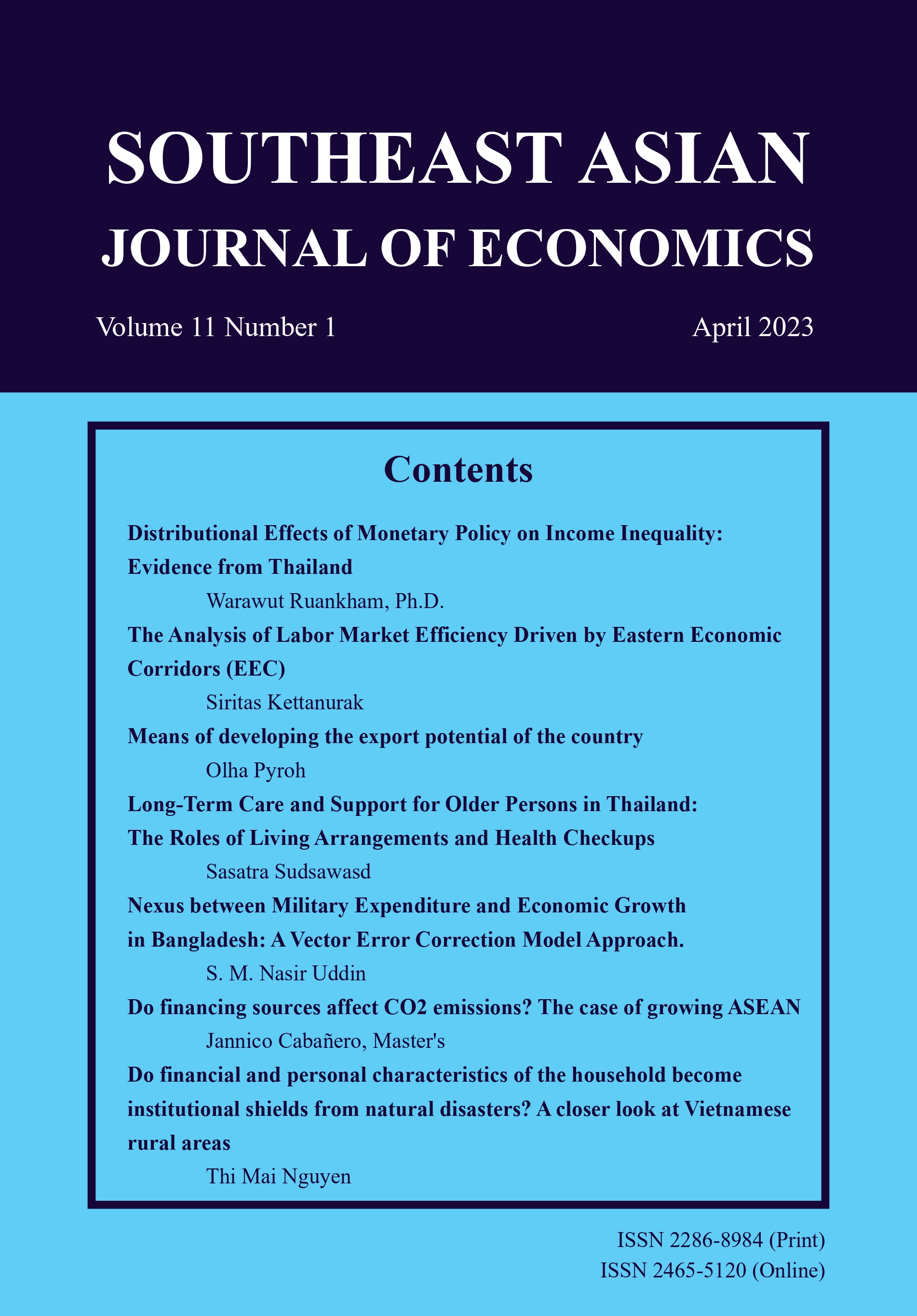Long-Term Care and Support for Older Persons in Thailand: The Roles of Living Arrangements and Health Checkups
Keywords:
Long-term care, living arrangement, household member, health checkupAbstract
This paper examines the relationship between living arrangements of older people in Thailand and the probability of their receiving assistance in daily activities from 2011 to 2017. Results from model estimations reveal that an older person living with other household members was more likely to receive assistance than was an older person living alone. However, living with grandchild(ren) seems to have less positive impact than other types of living arrangements. In addition, getting health checkups is shown to be another important determinant of the probability of older adults receiving care. These findings provide evidence to support the important roles that health checkups can positively have on the availability of care for those older persons who need assistance with activities of daily living—thus augmenting the provision of long-term care for the elderly in the country.
Downloads
Published
How to Cite
Issue
Section
License

This work is licensed under a Creative Commons Attribution-NonCommercial-NoDerivatives 4.0 International License.
The submission of a manuscript implies that the paper is an original work and has not been published elsewhere. The author(s) authorize the journal to reproduce or distribute the paper in printed or other electronic forms.







